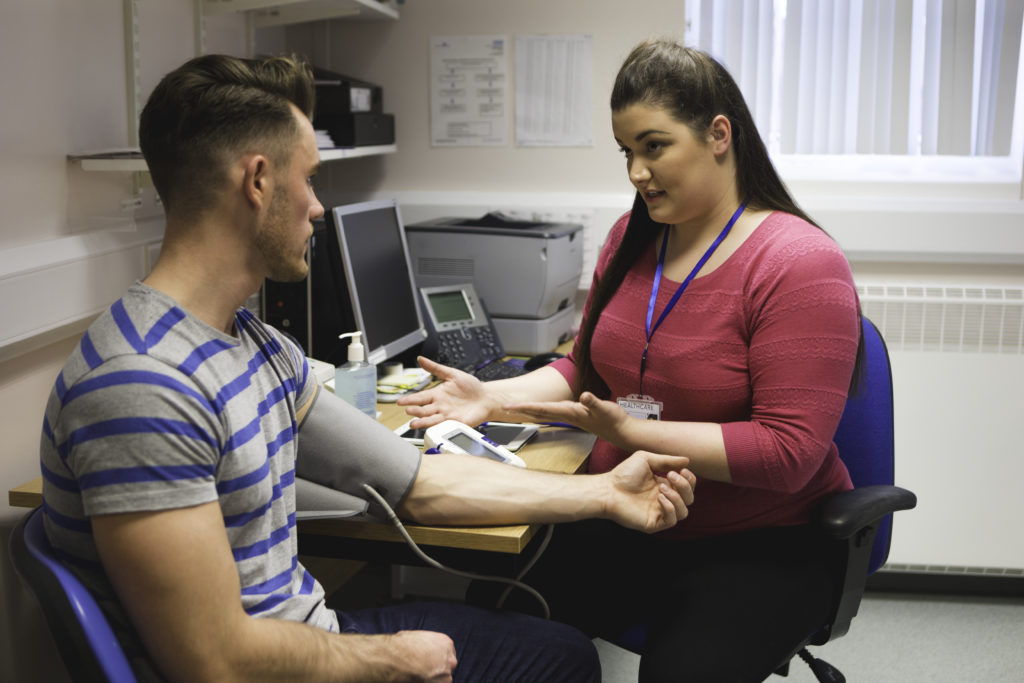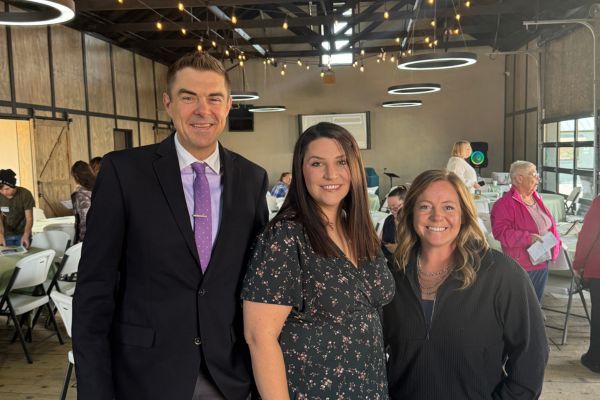5 Tips to Kick Start Your Health
Does getting healthy make you think of boring exercise and meals with far too little bacon and cheese? It doesn’t have to be that way. A few simple adjustments to your routine can go a long way toward improving your health and, in the long run, extend your life expectancy. Starting is easy. Kick start your health with these five tips:
Get active
You don’t have to be a fitness nut to reap the benefits of physical activity, which include weight control, better bone and muscle strength, reduced risk of chronic disease and longer life. Guidelines vary based on age and condition, but healthy adults can start by aiming for 150 minutes of moderate physical activity each week. Activities such as brisk walking, bike riding, and even mowing the lawn all count and you can break it down in as little as 10-minute increments. Even if you already have a chronic disease, regular exercise is beneficial. For example, physical activity helps diabetes patients gain control of their blood glucose. If you do have a chronic disease, however, don’t start an exercise program without first consulting with your physician.
Add fruits and vegetables
We all know that a good diet helps us maintain a healthy weight and boosts our health profile. But which one do you choose? Here’s a study that can help you rest more easily: Researchers compared a slate of popular diets such as vegan, low-carb, Mediterranean and paleo. While one wasn’t crowned as the very best, the study’s authors concluded: “A diet of minimally processed foods close to nature, predominantly plants, is decisively associated with health promotion and disease prevention.” Start by adding more fruits and vegetables to your day. Some easy ways to start: Set out washed grapes and cut fruit for easy snacking. Swap out cheese in your omelet for spinach and diced peppers. Check out this list for more easy tips.
Manage stress
Americans are stressed, thanks to our long commutes, rising costs of living, and trying to get it all done in the time that we have. Our bodies and minds are not well-suited for living in a constant state of stress. When your brain detects a threat, stress hormones are released into your bloodstream, putting you into that high-alert, fight-or-flight mode. It’s a useful survival system when you face a physical threat to life, limb or property. But chronic stress leads to heart problems, weight gain, depression and more. Take steps to help your body to turn it off. Use relaxation techniques, such as counting your breaths, yoga or meditation. Take time for your family and hobbies, and take care of your body by eating healthy, exercising and getting enough sleep.
Get regular health screenings
Chronic diseases such as diabetes, heart disease and cancer are big killers in the U.S., amounting to 7 of every 10 deaths. According to the Centers for Disease Control and Prevention, millions of Americans die preventable deaths each year because these chronic conditions were not detected early through regular checkups and screenings. Add years to your life and make appointments for your recommended checkups and screenings, taking into account the different schedules for women, men and children. It just might save your life. In many cases, health insurance covers preventative screenings.
Be positive
Borrow from the athlete’s playbook and think like a winner. To start, have a larger goal in mind, but be sure to break it down into smaller tasks so you are able to make progress each day. Football players call this chopping stone. Also, unlike the rest of us, athletes have trained themselves to not be rattled by discomfort. If the idea of getting out of breath fills you with dread, talk back to yourself — “I will be fine. In a short time, this is will be over and I will be the better for it.” Finally, don’t beat yourself up if you miss a workout or overindulge. It happens to everyone. Forgive yourself, promise yourself to do better and allow yourself to move on. With the right attitude, you will be fueled by the right intentions.
Taking care of yourself also means annual doctor visits, which means health care is a must. If you currently don’t have health insurance, Nevada Health Link is here to help. As part of a Qualifying Life Event (QLE), you may be eligible for a Special Enrollment Period (SEP). In other words, certain life events or situations, such as job loss, income change, marriage/divorce or birth/adoption of a child, may allow you to enroll in an insurance plan through Nevada Health Link outside of the annual open enrollment period.
All of our health plans exist to reduce the costs of health insurance and make sure you are covered. We’re always to help, so don’t hesitate to reach out for assistance.











